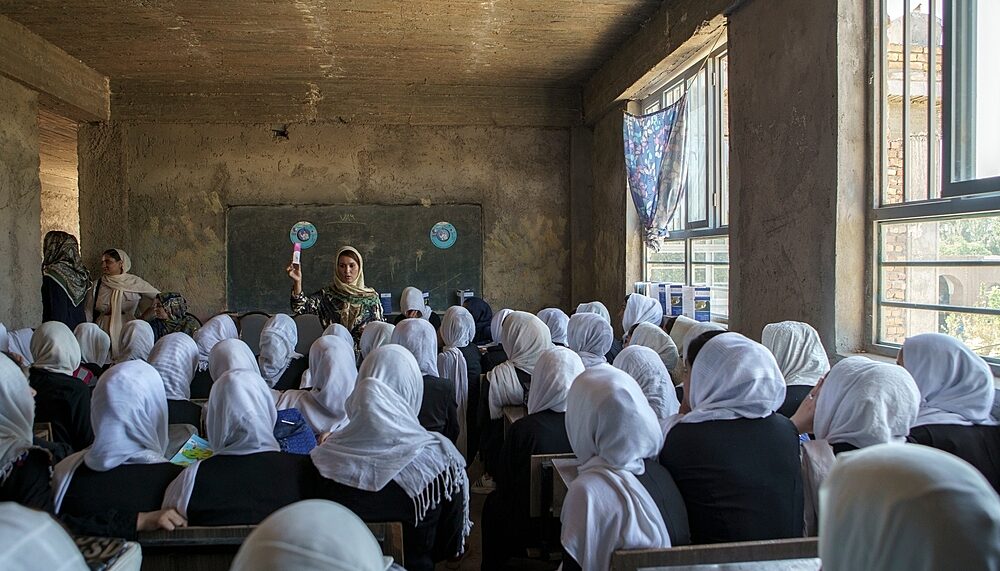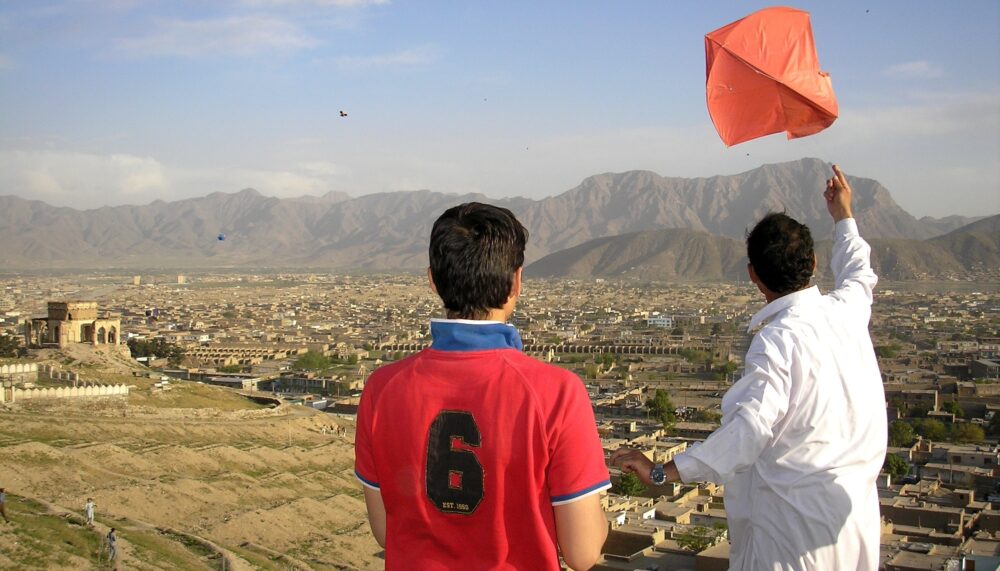FEATURE | 13 Apr 2022
Dialogue is the only way out of the crisis in Afghanistan
Our Afghanistan expert Theresa Breitmaier in an interview with German public television Tagesschau

Only constructive dialogue between the Taliban government and the international community will help the Afghan people to overcome this humanitarian crisis.
Eight months after the Taliban took power, Afghanistan is facing an economic and humanitarian crisis of catastrophic proportions. According to United Nations estimates, one million children will be at risk of hunger in the coming months. Five million Afghans have already left their country. Even before the Taliban regained power, Afghanistan was one of the poorest countries in the world. The current policies of many Western governments are only exacerbating the humanitarian catastrophe. A resurgence of violence cannot be ruled out. In this context, the Berghof Foundation continues to emphasise that only dialogue between the international community and the country’s new rulers can lead to an improvement of the situation for all Afghans – also with regard to fundamental rights, such as the right of girls to attend school.
Our Afghanistan expert Theresa Breitmaier was interviewed about the situation in Afghanistan for a Social Live on Tagesschau.de.
After the Taliban's victory in August 2021, many countries suspended their financial aid to Afghanistan, which had been vital for the survival of the Afghan people for many years, and imposed sanctions. This threatens to plunge the country into complete economic collapse. Many Afghans are forced to flee the country or to engage in desperate acts such as selling their organs. According to reports, some families are even compelled to sell their children. In the medium to long term, these developments threaten to irretrievably destroy the country's state institutions and middle class, which would be devastating for the prospect of sustainable peace and prosperity in Afghanistan.
After a lawsuit filed by relatives of victims of the 9 September 2001 attacks against the Taliban was upheld in the USA, the US government decided to seize seven billion US dollars’ worth of Afghanistan's central bank assets held in US banks. This is the latest and most egregious step in a series of measures that are exacerbating the crisis in Afghanistan and damaging the country’s relations with the US and international partners in the long run. The US government must find a way to release these assets in a responsible manner and must allow its international partner organisations to resume aid deliveries to the country in order to prevent the humanitarian disaster from completely spiralling out of control.
Only if constructive and effective communication between the international community and the Taliban government is established will it be possible in the medium term to create the structures that are necessary for reconciliation and long-term peace in the country.
By taking power and claiming sole executive authority, the Taliban have assumed responsibility for the well-being of their population. This includes the obligation to gain internal as well as external legitimacy, which can only succeed if the causes of the long-standing conflict in Afghanistan are addressed. Work must also be done to ensure that all Afghans see their interests represented through participatory government structures. The abrupt decision at the end of March to ban girls from attending public schools from adolescence onwards constitutes an unacceptable regression in internal confidence building. The current government acted against a promise it had publicly made to its own people, causing immense frustration and outrage. Internationally, this decision dealt a serious blow to the budding dialogue between the Taliban government and the international community. This dialogue, as well as a constructive engagement of the international community with the current Afghan government, is still indispensable for achieving the goal of a peaceful and prosperous Afghanistan. However, it must be clearly communicated that school attendance for all girls is a non-negotiable component of a prosperous and peaceful future, and that restrictions in this area have a clear negative impact on potential international cooperation.

Since 2016, the Berghof Foundation has been supporting peace efforts in Afghanistan. We are convinced that a continuation of financial aid and a sustained commitment of the international community are the only way to mitigate the humanitarian catastrophe the country is facing. Only if constructive and effective communication between the international community and the Taliban government is established will it be possible in the medium term to create the structures that are necessary for reconciliation and long-term peace in the country. In order to gradually start a genuine dialogue, the Taliban and the international community need to find a way to stop exchanging the same worn out slogans and unrealistic, absolute demands. Both sides must agree, on the basis of nuanced analyses, on concrete goals that build on each other step by step, and can realistically be implemented. Only through such dialogue – in combination with fulfilling the promises made – can mutual trust slowly emerge.
Building constructive relations will not only benefit the Afghan people, but also the international community itself. Without effective support, the economic and humanitarian crisis in Afghanistan will continue to have serious consequences for the economic and security situation in neighbouring countries, in Europe and in many states around the world. The longer it takes for a rapprochement between the international community and the Taliban leadership to produce tangible results, the more the hope Afghans still place in global solidarity will be undermined.
Media contact
You can reach the press team at:
+49 (0) 177 7052758
email hidden; JavaScript is required


